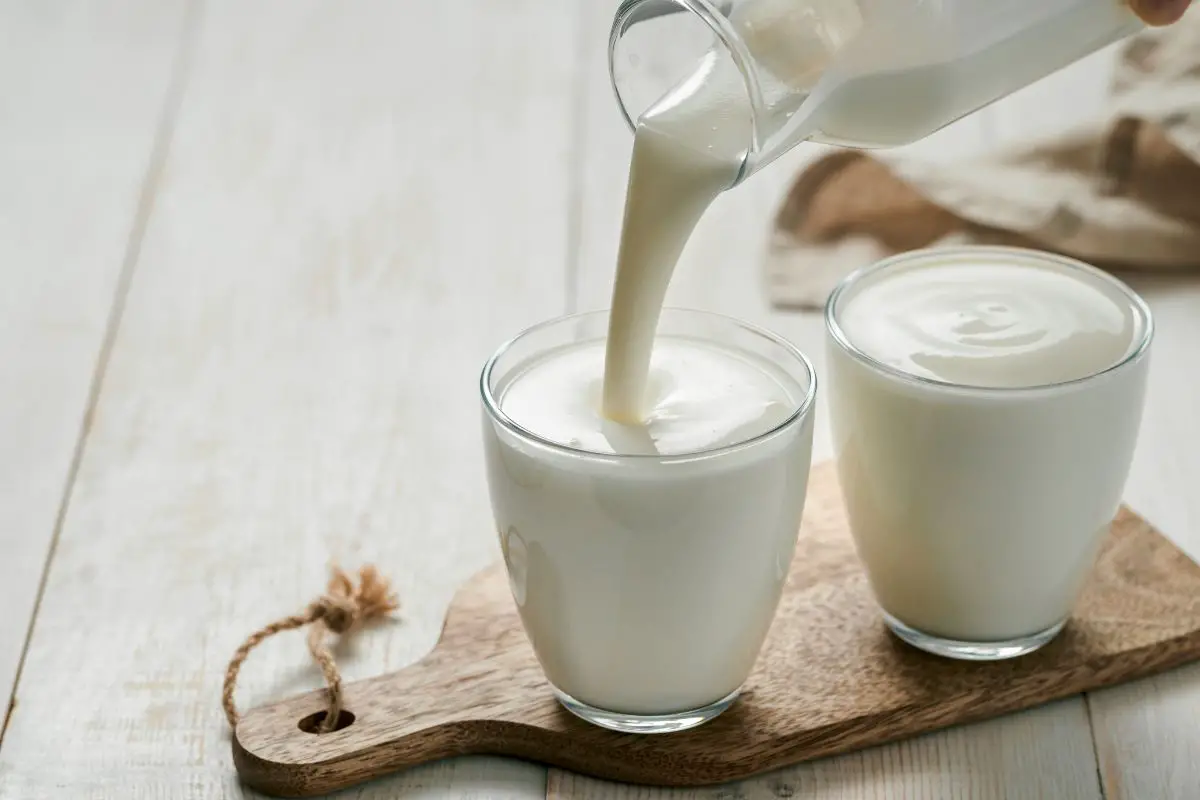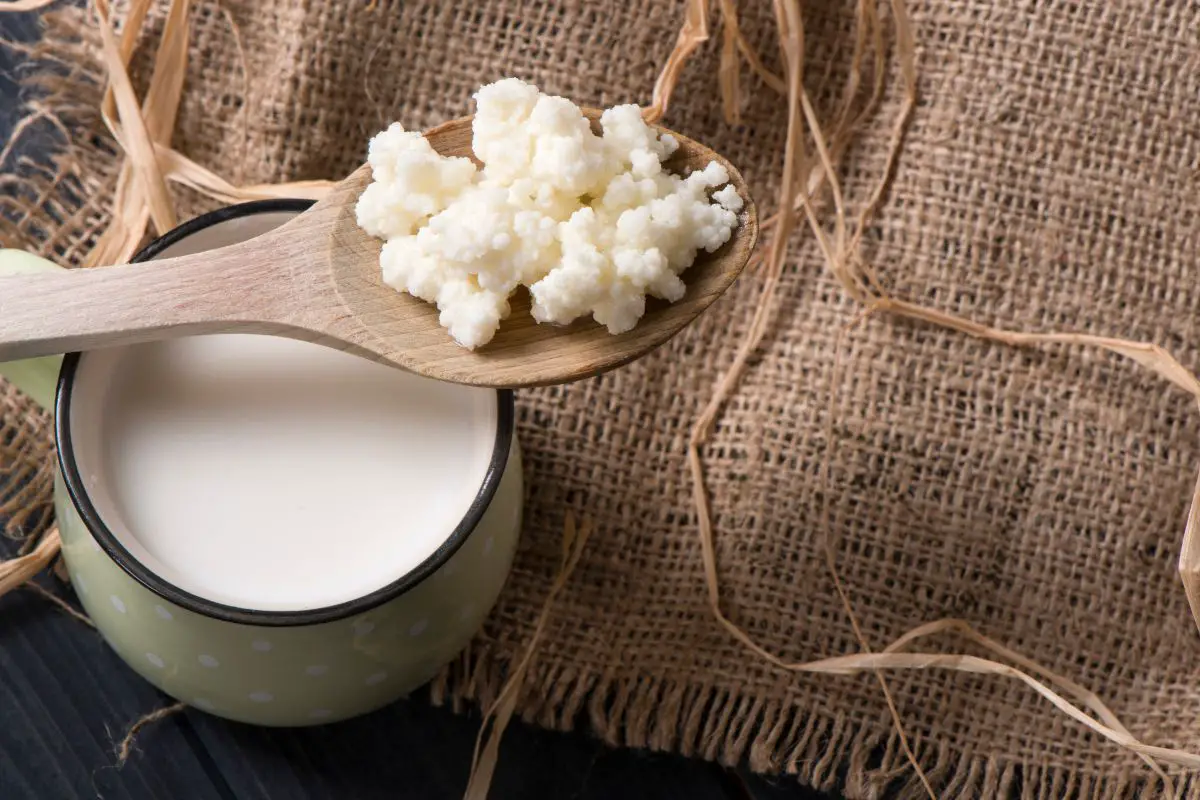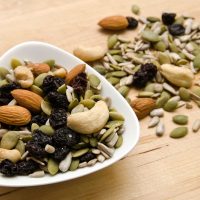
Kefir is a great way to support your gut health and boost your immune system. But if you are on a keto diet you may be wondering, is kefir keto friendly?
We take a look at this question so that you know whether you can work kefir into your keto diet and how it can benefit your health and your nutrition.
Explaining What Kefir Is
Kefir has become popular in recent years and is available in lots of grocery stores. It is a fermented drink that is made with milk or water and kefir grains.
These grains are live bacteria and yeasts.
The name kefir originates from the Turkish language and means ‘feel good’.
In taste and appearance kefir is similar to yogurt. But while yogurt typically contains 3–5 strains of microbes, kefir has 12-15 of them.
Additionally, yogurt is pasteurized which effectively kills off the beneficial bacteria and microbes.
The probiotics in fermented foods are essential for your body to help keep the unhealthy bacteria under control.
They also have excellent health benefits for your digestive health and immune system.
Nutritional Facts About Kefir
It is possible to make kefir with cow’s milk, coconut milk, goats milk, rice milk, almond milk or water.
Therefore the nutritional value of the drink will vary depending on which liquid is used.
Organic, dairy milk from grass fed cows gives the most health benefits as it contains a greater range of friendly bacteria than some other fermented drinks or food.
One cup of whole milk kefir contains:
- Calories: 161
- Fat: 2 grams
- Protein: 9 grams
- Net carbohydrates: 10 grams
- Vitamins: A, B & D
- Minerals: sodium, calcium, magnesium, phosphorus
- Fiber: nil
- CFU: 27 billion
In comparison a cup of whole milk yogurt has 3.6 billion CFU.
CFU stands for colony forming unit and is the number of live microorganisms in a single serving of a probiotic supplement.
Health Benefits Of Including Kefir Into A Keto Diet
The keto diet only allows between 20 and 50 grams of carbohydrates to remain in ketosis.
A typical 8 ounce serving of kefir only has 10–13 grams of net carbohydrates, so it is safe to consume on a keto diet.
As long as you only consume a single serving per day you should be fine. However, water kefir has fewer carbs and one serving normally has less than a gram of carbohydrates.
There are many other health benefits to including kefir in your keto diet too. It is rich in nutrients and is a great source of protein.
Digestion
One of the most well known health benefits of probiotics is their effect on gut health.
They help to prevent unfriendly microbes growing too profusely in your digestive system. Probiotics also encourage the growth and variety of friendly bacteria.
For a healthy digestive system diverse gut flora is very important.
It reduces bloating, promotes good digestion, supports metabolic health, protects against pathogens and boosts your immune system.
Kefir is full of live microbes that will exercise all these healthy benefits on your gut health and digestion.
It is a more potent source of probiotics than yogurt and kefir grains contain dozens of strains of bacteria and yeast.
These can restore the balance of friendly bacteria in your gut and aid digestion.
Supports Immune Function

As kefir is rich in friendly bacteria it can modulate your immune system.
It was shown in one report that kefir boosts the immune system by increasing cytokine production.
Cytokines are substances which are secreted by some cells in the immune system and which have an effect on other cells.
Examples of cytokines are interleukin, interferon and growth factors.
These are signaling cells that help to control inflammation in your body. In your immune system they form a defense mechanism against germs or viruses that can make you ill.
Some probiotics found in kefir may protect against infection including lactobacillus kefiri, something that is unique to kefir.
Studies have shown that this can inhibit the growth of E. coli, and salmonella.
Reduces Liver Fat
As kefir is one of the best sources of natural probiotics it helps to balance your microbiome.
By changing gut microbiota composition and increasing bile acid synthesis it is possible to reduce liver fat.
Bile is produced in the liver and helps to break down fat, if levels of bile are low then fat can increase in the liver.
This can cause a range of symptoms including cravings, nausea and bloating after eating fatty foods.
Drinking kefir can help with this by providing natural probiotics in large numbers.
Promotes Good Sleep
The microbes in kefir make serotonin which aids a restful night’s sleep.
Serotonin is a hormone which can reduce stress and affect your mood in a positive way. It also makes melatonin which aids sleep.
Some of the nutrients found in kefir also aid a good night sleep including thiamine and calcium.
Making Kefir For Your Keto Diet
If you have decided to include kefir in your keto diet then you should know how to make it so that it is as low carb as possible.
Making keto friendly kefir is easy and can be done with water, dairy milk, or coconut milk.
Coconut Milk Kefir
To make 8 servings of coconut milk kefir you will need 4 cups of coconut milk and a sachet of kefir starter.
Simply mix the kefir starter into the coconut milk until they are combined. Then pour the mixture into a large container and cover with a tea towel or cheesecloth.
Leave for 24–48 hours at room temperature. Then strain out the kefir grains and pour the milk kefir into a container that can be sealed. Shake the container and drink.
Any leftover coconut milk kefir can be kept in the refrigerator for about a month.
Full Fat Milk Kefir
The same process is used to make full fat milk kefir, but the ratio is 1 cup of full fat milk to 1 tablespoon of kefir grains.
For this version it takes just 12–36 hours for the fermentation process to work. It is complete when the milk smells sour and has slightly thickened.
Water Kefir
If you choose to make water kefir you will need 2 cups of chlorine-free water, 2 tablespoons of kefir grains and ¼ cup of organic sugar.
Mix the water and sugar together and then add the kefir grains. Follow the same procedure as for the coconut milk kefir.
Final Thoughts
We hope that you have enjoyed this guide to whether kefir is keto friendly and that it has been informative and helpful for you.





